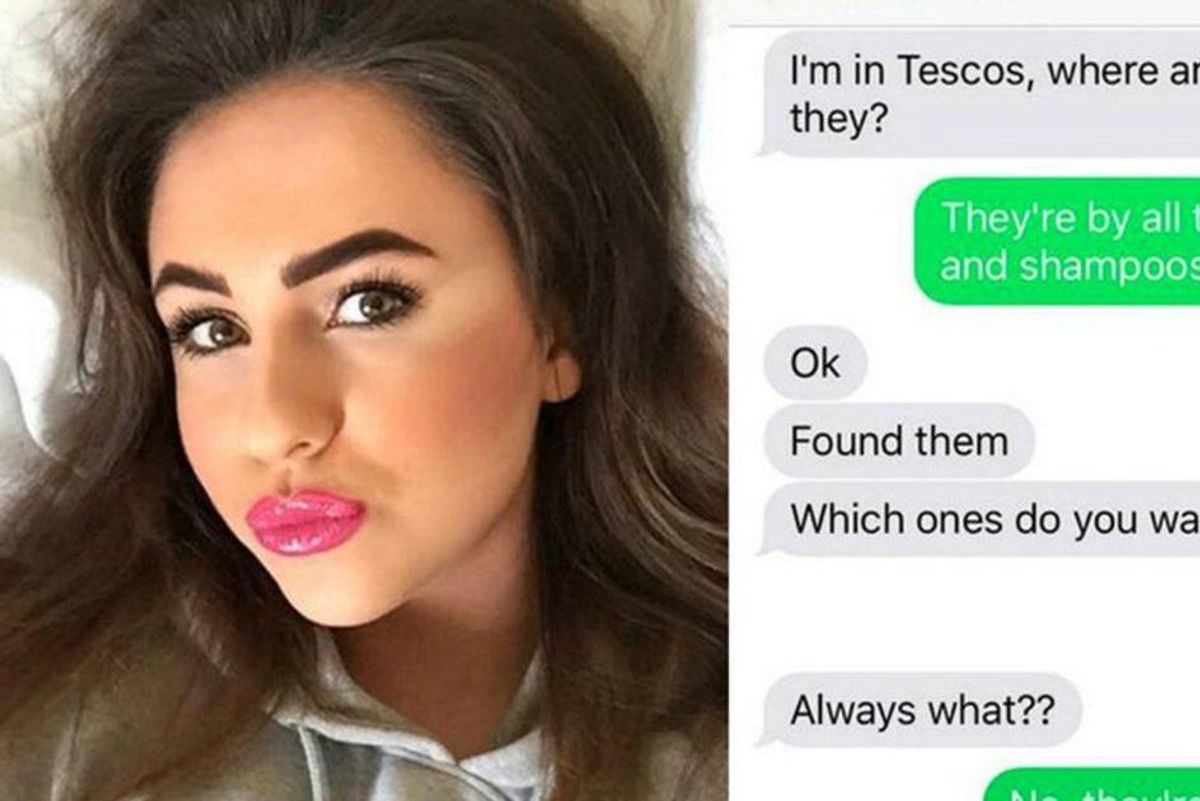Dad's sincere texts while buying pads for his daughter are a hilarious attempt to get it right
Now, that’s being a good dad!

Tia Savva has an invested father.
Sadly, a lot of men go out of their way to avoid learning anything about a woman's period. (That could be why throughout most of the United States — where the majority of lawmakers are men — feminine hygiene products are subject to sales tax.)
So we should give some love to the guys who make an effort to learn a bit about the menstrual cycle so they can help their family members when they're in desperate need of feminine hygiene products. Personally, as a guy, the feminine hygiene aisle can be a little intimidating. There are multiple brands, styles of products, scents, absorbency levels, and they are all color-coded.
What do the colors mean?
Knowing there's a lot I don't know, I take a picture on my phone of the box I'm about to purchase and send it to my wife, asking, "Is this the right one?"
A dad in the U.K. is getting some love on social media for the hilarious way he navigated the world of feminine hygiene products while showing how much he loved his daughter in the process.
It all began when Tia Savva sent her dad to Tesco, a popular U.K. drug store, to pick up some tampons.

Family humor.
For all the guys out there that need a solid primer on what goes on in the feminine hygiene product aisle, this quick tutorial from Mel magazine does a pretty great job.
This article originally appeared on July 2, 2019
- Women are shocking their boyfriends by showing them how ... ›
- Spain may become the first European nation to offer paid period leave - Upworthy ›
- Men react to the price of items women typically use - Upworthy ›
- Daughter and mom's period product texts - Upworthy ›
- Women are shocking their boyfriends by showing them how tampons actually work - Upworthy ›



